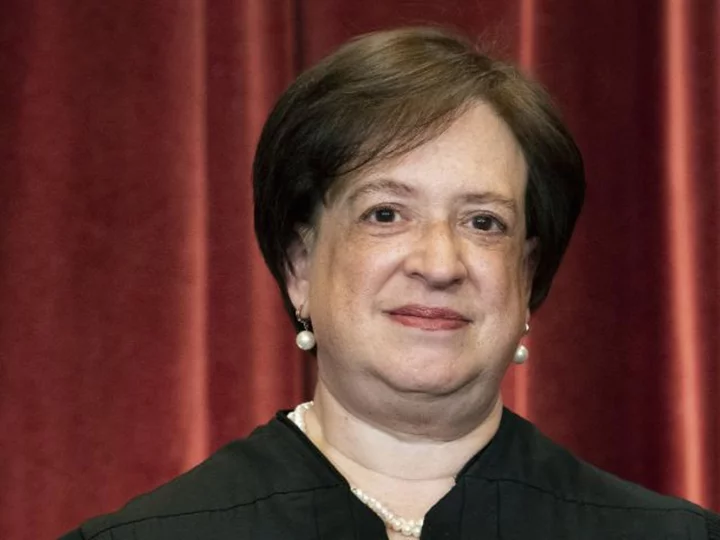Justice Elena Kagan declined Thursday to outright answer the question of whether Congress could impose an ethics code on the Supreme Court, but she did allow that it could do "various things" to regulate the high court.
"It just can't be that the court is the only institution that is somehow not subject to any checks and balances from anybody else," she said, adding, "I mean, we are not imperial."
"We, too, are part of a checks and balances system," she said.
But, the justice noted, there are limits. Congress, she said, "can't do anything it wants."
"You know, if Congress did something that basically, you know, that effectively, prevented the court from fulfilling its assigned responsibilities, I mean, that would raise some pretty serious constitutional issues," Kagan said.
The liberal justice declined to say much more about a bill that advanced out of the Democrat-led Senate Judiciary Committee at the end of July -- meant to force the Supreme Court to adopt a stronger ethics policy -- for fear legal challenges surrounding the issues could someday land before the court.
"In the back of my mind I'm thinking, 'Who knows? Something might come before us someday,'" she said.
If the law advances, she said, "then we'll have the chance to say something about it."
Her comments, at the Ninth Circuit Judicial Conference in Portland, Oregon, come after Justice Samuel Alito told The Wall Street Journal last month that Congress should stay out of the Supreme Court's business and stop trying to impose ethics rules on justices and clerks.
Asked specifically about Alito's interview, Kagan demurred, saying, "I didn't read that interview."
Kagan said the justices are still working behind closed doors to consider whether to implement a code of conduct that would be directed specifically at the high court.
"It's not a secret for me to say that, you know, we have been discussing this issue," Kagan told the audience.
Kagan also addressed public confidence in the court system, saying she believes the court can create confidence by "acting like a court" and staying away from decisions that look political or imposing personal preferences.
"For me, what it means is a certain kind of restraint and moderation. It means being careful not to trespass on other institutions'" areas of responsibility, she said.
"The court should be extremely wary of doing things that essentially make it the policy maker on important issues," she added.









